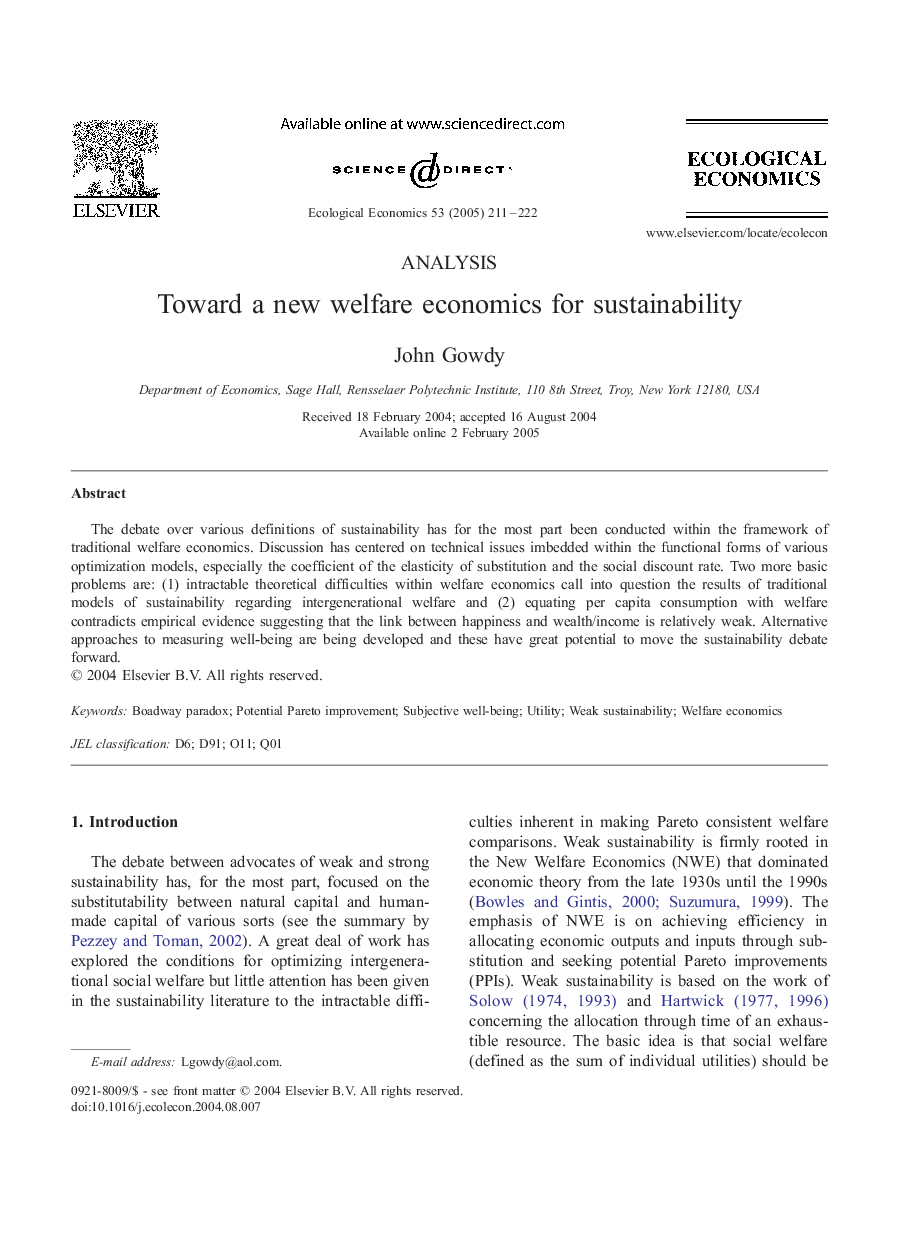| Article ID | Journal | Published Year | Pages | File Type |
|---|---|---|---|---|
| 9547813 | Ecological Economics | 2005 | 12 Pages |
Abstract
The debate over various definitions of sustainability has for the most part been conducted within the framework of traditional welfare economics. Discussion has centered on technical issues imbedded within the functional forms of various optimization models, especially the coefficient of the elasticity of substitution and the social discount rate. Two more basic problems are: (1) intractable theoretical difficulties within welfare economics call into question the results of traditional models of sustainability regarding intergenerational welfare and (2) equating per capita consumption with welfare contradicts empirical evidence suggesting that the link between happiness and wealth/income is relatively weak. Alternative approaches to measuring well-being are being developed and these have great potential to move the sustainability debate forward.
Related Topics
Life Sciences
Agricultural and Biological Sciences
Ecology, Evolution, Behavior and Systematics
Authors
John Gowdy,
